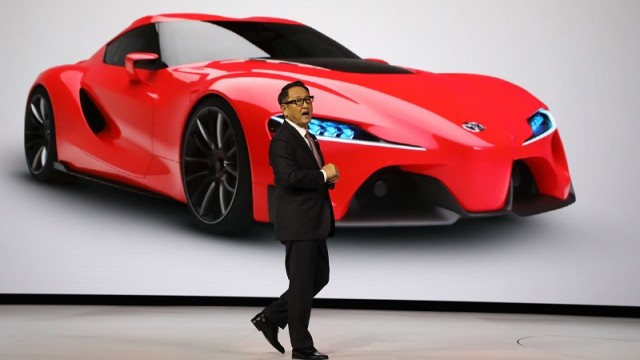TOKYO - Drive 500 km on a single charge. Recharge from zero to full in 10 minutes. All this with minimal security concerns. The solid-state battery presented by Toyota promises to be a game changer not only for electric vehicles, but for the entire industry.
This technology is a potential panacea for the shortcomings faced by electric vehicles using conventional lithium-ion batteries, including the relatively short distance traveled per charge and charging times. Toyota plans to be the first company to sell a solid-state battery electric vehicle in the early 2020s. The world's largest automaker will unveil a prototype next year.

Toyota's electric vehicles will have more than double the range of a car powered by a conventional lithium-ion battery under the same conditions. And all this without sacrificing interior space even in the smallest car;
Solid-state batteries are expected to become a viable alternative to lithium-ion batteries that use aqueous electrolyte solutions. The innovation will reduce the risk of fire and multiply the energy density, which measures the energy a battery can
Charging an electric vehicle equipped with a solid-state battery will take about 10 minutes, which will reduce the charging time by two-thirds. The battery can extend the travel distance of a compact electric vehicle while saving legroom.
Toyota ranks first in the world with more than 1,000 patents for solid-state batteries. Nissan Motor plans to develop its own solid-state battery that will be used in non-simulator vehicles by 2028.
The shift to new battery technology will also affect companies further down the supply chain.
Japanese manufacturers of automotive materials are rushing to create the necessary infrastructure to supply automakers. Mitsui Mining and Smelting, better known as Mitsui Kinzoku, will launch a pilot plant for the production of solid electrolytes for batteries. Eliver compared to it is weight.
The production site, located at the research and development center in saitama prefecture, will be able to produce tens of tons of solid electrolyte annually starting next year, which is enough to fulfill orders for prototypes.
Oil company idemitsu kosan is installing solid electrolyte production equipment at its facility in chiba prefecture to begin operations next year. The production of solid electrolytes requires the solidification of sulfides, which is a specialty of the metallurgical and chemical industries. Sumitomo Chemical is also engaged in the development of materials.
Japanese manufacturers such as Sony and Panasonic have been pioneers in the commercialization of car batteries. But since the late 2000s, Chinese competitors have become more visible. Contemporary Amperex Technology Co. Limited, also known as CATL, is currently the world's largest supplier of lithium-ion batteries. Japan's Asahi Kasei, once a global leader in battery separation materials, lost the crown to Shanghai Energy last year.
It is expected that electric vehicles will become commonplace against the backdrop of global rejection of carbon. The Japanese government is encouraging domestic development of solid-state batteries, believing that much of the technology associated with car performance will depend on china if the status quo persists.
The government is creating a fund of about 2 trillion yen ($19.2 billion) that will support decarbonization technology. Politicians will consider using the funds to provide subsidies of hundreds of billions of yen to fund the development of new batteries.
The goal is to support the development of mass production infrastructure in Japan. Since solid-state batteries use lithium, a cell with a limited global supply, the government will help procure this material.
The rest of the world follows suit. German Volkswagen plans to launch solid-state battery production as early as 2025 through a joint venture with an American startup.
Chinese technology group QingTao (Kunshan) Energy Development will spend over 1 billion yuan ($ 153 million) on solid-state battery research and development, among others. The investment is designed for three years starting in 2021.
